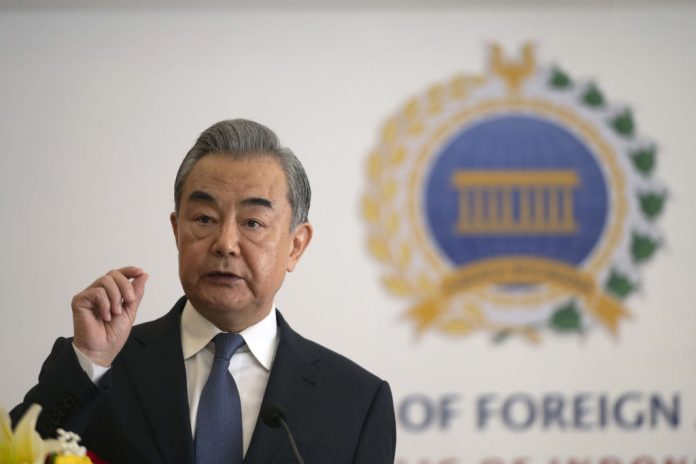The Palestinian representative to the UN called for pressure on Israel to stop obstructing humanitarian missions in Gaza, while the foreign ministers of China and Indonesia called for an immediate and lasting ceasefire in the Gaza Strip after meeting in Jakarta on Thursday.
The Palestinian president’s representative at the UN called on Wednesday for the international community to support the UN agency for Palestinian refugees, or UNRWA, and to pressure Israel to stop starving the people of Gaza. Ziad Abu Amr made the remarks while addressing a UN Security Council open meeting on UNRWA at the request of Algeria and Jordan. He said:
“We appeal for financial and political support to UNRWA and pressure on Israel not to harm its employees. Israel must be firmly pressured to stop starving the Palestinian people and respect UN laws.”
Abu Amr noted that “Israeli defamation campaigns against UNRWA are not new and serve to undermine its role in serving Palestinian refugees.” He stressed that “there is no alternative to UNRWA.” UNRWA is “the only international organisation that combines international supervision and serving the Palestinian people,” Abu Amr added.
Meanwhile, the foreign ministers of China and Indonesia called for an immediate and lasting ceasefire in the Gaza Strip after meeting in Jakarta on Thursday, condemning the humanitarian cost of the ongoing war that has killed tens of thousands of Palestinians.
Indonesian Foreign Minister Retno Marsudi told reporters that both countries share the same view on the importance of a ceasefire and a two-state solution to the Palestinian issue. Marsudi said, adding that China and Indonesia “would also fully support Palestine’s membership in the UN”:
“I am sure that China would use its influence to prevent escalation.”
The meeting took place on the second day of a six-day tour during which Chinese Foreign Minister Wang Yi will also visit Papua New Guinea and Cambodia. Wang accused the United States of delaying ceasefire resolutions at the UN. Wang told reporters:
“The conflict in Gaza has lasted for half a year and caused a rare humanitarian tragedy in the 21st century. The United Nations Security Council responded to the call of the international community and continued to review the resolution draft on the ceasefire in Gaza, but it was repeatedly vetoed by the United States.”
The US vetoed a number of proposed Security Council resolutions because they did not directly link the ceasefire to the release of Israeli hostages or condemnation of the Hamas attacks that provoked the war, before the resolution was adopted in late March with abstentions.
US officials argued that the ceasefire and hostage release were linked, while Russia, China and many other Council members favoured unconditional calls for a ceasefire.
